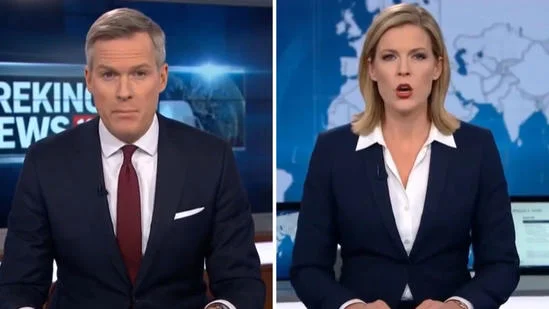
TikTok’s Reality Crisis: Are We All Just Veo 3 Prompts?
Google's Veo 3 AI model is making waves, generating incredibly realistic eight-second video clips. But a strange trend is emerging on TikTok: real people pretending to be AI creations. Is this just a joke, or a sign of deeper anxieties about the blurring lines between reality and artificial intelligence?
From music videos to philosophical musings, TikTok users are finding creative ways to exploit the capabilities of Veo 3. Articles are highlighting how real videos are now being presented as AI, and vice versa, leading to confusion and amusement. One article from Ars Technica delves into this bizarre phenomenon, exploring how musicians and comedians are leveraging the "Veo 3" tag to grab attention.

Kongos, an indie band known for their 2012 hit "Come With Me Now," posted a video claiming their performance was generated by Veo 3. The song, actually nine years old, gained traction simply because of the AI hook. Darden Bela and Rapper GameBoi Pat followed suit, dressing up older music videos and songs as fresh Veo 3 creations.
As Kyle Orland from Ars Technica aptly puts it, "Without the 'Look what Veo 3 did!' hook, I might have quickly scrolled by this video." This highlights how the AI label creates a sense of novelty and intrigue, compelling viewers to stop and engage.
The trend extends beyond music. Some TikTok users are creating skits based on the "prompt theory," reacting to the idea that they are merely lines of code. Others are ambushing friends and strangers, asking them, "Are you a prompt?" These interactions reveal a broader cultural fascination and unease with the notion of simulated realities.
One of the most engaging Veo 3-related hacks involves videos presenting viewers with multiple short clips and asking them to identify which are real and which are fake. The challenge of discerning reality from simulation is incredibly captivating, demonstrating the rapid advancements in AI video generation and our growing difficulty in spotting the difference.
Another article highlighted a street interview with two women, where their seemingly off-the-cuff answer about AI was actually generated by AI. The video, posted with the tag Veo 3, quickly went viral, shocking users with its realism. One commenter even declared, "It's over for humanity," showcasing the genuine fear and awe that Veo 3 is inspiring.

While these trends might seem like harmless fun, they underscore a significant shift: we're entering a "deep doubt" era where skepticism towards video footage is paramount. As AI-generated fakes become more convincing, the line between truth and fabrication blurs. The articles warn that this can lead to a “liar's dividend,” where even genuine videos can be dismissed as fake.
Is this just a temporary fad, or a sign of a future where discerning real from AI-generated content becomes increasingly challenging? How will this shift impact trust in media and our understanding of reality? Share your thoughts and experiences in the comments below!